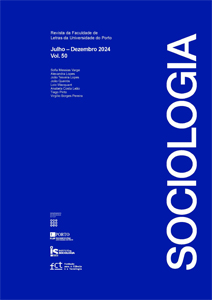Intersectionality
concept and critique of the concept
Abstract
This text scrutinises the genesis of the concept of intersectionality, coined by Kimberlé Crenshaw in 1991, highlighting the social, theoretical and institutional conditions of its invention, which is not unrelated to the author's dual belonging as an academic (jurist) and African American activist for black women's rights. Two types of intersectionality are then presented: one, avant la lettre, more abstract and general (type 1), of a systemic and structural nature, which includes the societal theories of Pierre Bourdieu and Karl Marx. Another, closer to the phenomenological ground of experience type 2), whose starting point is drawn up precisely by Crenshaw.
The concept is subjected to a holistic and materialist critique, associated with Nancy Fraser's idea of capitalism as an institutionalised social order, highlighting the potential of intersectionality, particularly in the updates that Crenshaw has incorporated, but also the theoretical and civic risks of atomisation, differentialism and individualistic identity appropriation. Finally, it is suggested that type 1 and type 2 of intersectionality should be crossed.
Downloads
Published
How to Cite
Issue
Section
License
Copyright (c) 2025 Sociologia: Revista da Faculdade de Letras da Universidade do Porto

This work is licensed under a Creative Commons Attribution-NonCommercial 4.0 International License.
Sociologia - Revista da Faculdade de Letras da Universidade do Porto © 1991 by Faculdade de Letras da Universidade do Porto is licensed under CC BY-NC 4.0


